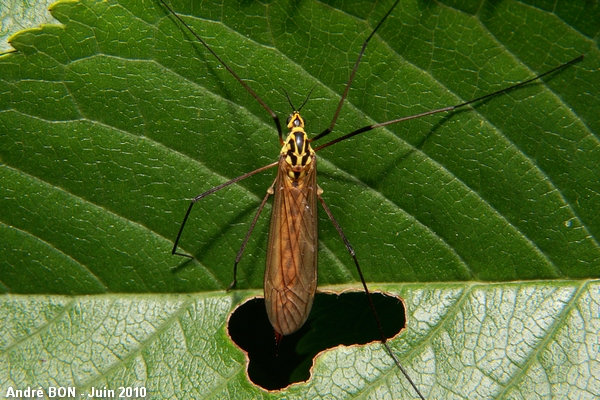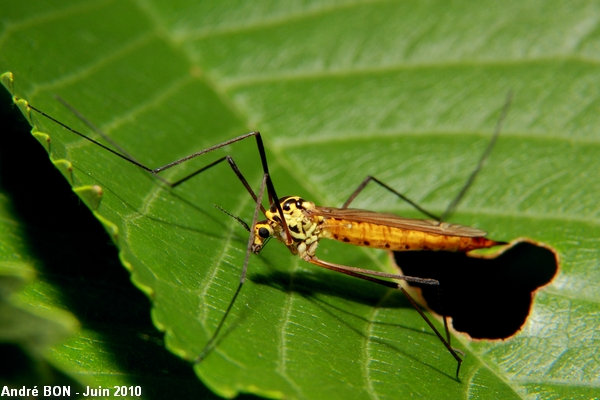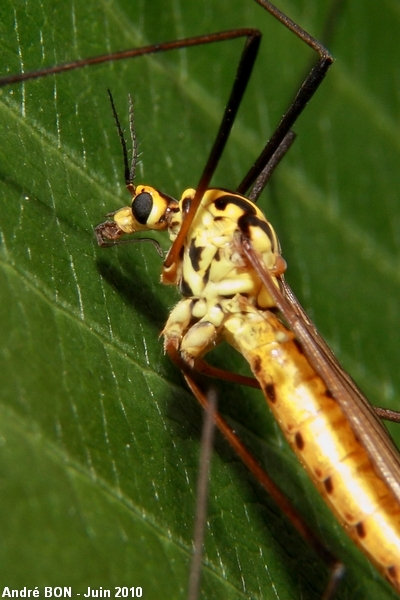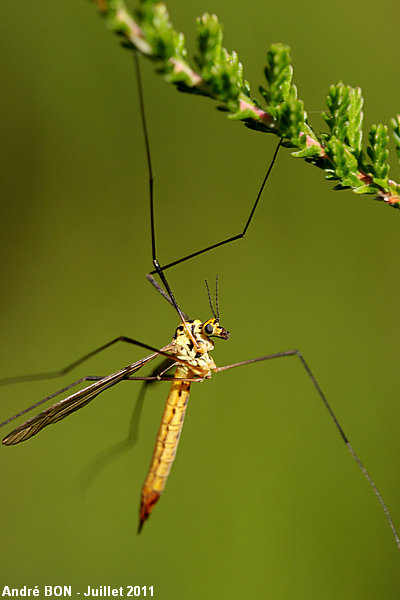



| Nephrotoma flavescens (Linnaeus, 1758) |




|
|
Scientific name: Nephrotoma flavescens (Linnaeus, 1758) Common name: French name: Order: Diptera Family: Tipulidae Wingspan : Male 14mm; Female 18mm; Wing length: 13-15mm Biotope: Hedgerows, woodland edges, parks and gardens. Geographic area: Europe. Observation period : April to September. |
Like other crane flies, diptera of the Nephrotoma genus show very long and fragile legs. The thorax bears black marks on a yellow ground colour. The wings are held aligned over the body when at rest. Nephrotoma flavescens has clear pterostigmas. Many Nephrotoma species show dark pterostigmas. The upper side of the head shows a large teardrop-shaped black mark, Nephrotoma submaculosa shows a thin black mark. The orange yellow abdomen is marked with a dark longitudinal dotted line. The sides of the thorax, anatergite and katatergite (located between the haltere and the base of the wing) are pale yellow. This area has more black parts (U-shaped) on the Spotted Cranefly (Nephrotoma appendiculata). The abdomen is pointed on females. The larvae grow in the soil and feed on roots. |
| [To know more about the Nephrotoma flavescens] [Next picture] [Top] |

|
This view shows the typical resting position with the wings aligned over the body. You can see the clear pterostigmas on the wings and the large teardrop-shaped black mark on the upper side of the head. |
| [To know more about the Nephrotoma flavescens] [Next picture] [Previous picture] [Top] |

|
General side view. |
| [To know more about the Nephrotoma flavescens] [Next picture] [Previous picture] [Top] |

|
Close-up view on the side of the thorax showing the pale yellow area between the haltere and the wing. |
| [To know more about the Nephrotoma flavescens] [Previous picture] [Top] |

|
I haven't got any view of the pterostigmas nor of the black mark on the top of the head. The colour of the anatergite and katatergite plates, located on the side of the thorax, matches the Nephrotoma flavescens species. So let's say Nephrotoma flavescens probable. |